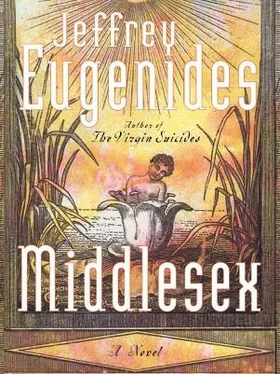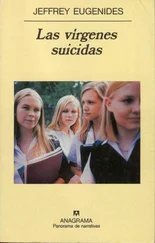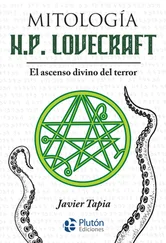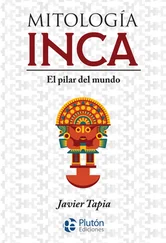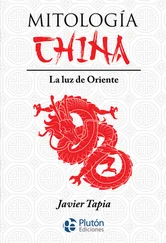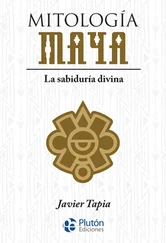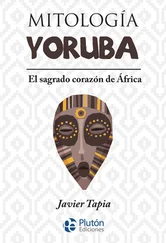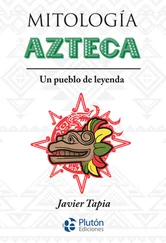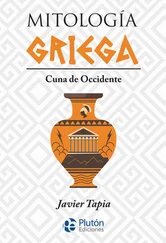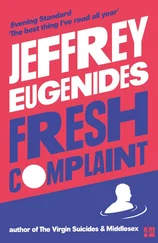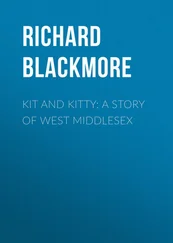“Think so?”—my father, jovially—“Maybe a little collard greens?”
I snuck out, going to look for Marius. He was in his usual spot but sitting, not standing, and reading a book.
“Test tomorrow,” he told me. “Gotta study.”
“I’m in second grade,” I said.
“Only second! I had you down for high school at least.”
I gave him my most winning smile.
“Must be that Ptolemy blood. Just stay away from the Roman men, okay?”
“What?”
“Nothing, Little Queen. Just playing with you.” He was laughing now, which he didn’t do that often. His face opened up, bright.
And suddenly my father was shouting my name. “Callie!”
“What?”
“Get over here right now!”
Marius stood up awkwardly from his chair. “We were just talking,” he said. “Smart little girl you got here.”
“You stay away from her, you hear me?”
“Daddy!” I protested, appalled, embarrassed for my friend.
But Marius’s voice was soft. “It’s cool, little Cleo. Got this test and all. Go on back to your dad.”
For the rest of that day Milton kept after me. “You are never, ever, to talk to strangers like that. What’s the matter with you?”
“He’s not a stranger. His name is Marius Wyxzewixard Challouehliczilczese Grimes.”
“You hear me? You stay away from people like that.”
Afterward, Milton told my grandfather to stop bringing me down to the diner for lunch. But I would come again, in just a few months, under my own power.
They always think it’s the old-school, gentlemanly routine. The slowness of my advances. The leisurely pace of my incursions. (I’ve learned to make the first move by now, but not the second.)
I invited Julie Kikuchi to go away for the weekend. To Pomerania. The idea was to drive to Usedom, an island in the Baltic, and stay in an old resort once favored by Wilhelm II. I made a point to emphasize that we would have separate rooms.
Since it was the weekend, I tried to dress down. It isn’t easy for me. I wore a camel-hair turtleneck, tweed blazer, and jeans. And a pair of handmade cordovans by Edward Green. This particular style is called the Dundee. They look dressy until you notice the Vibram soles. The leather is of a double thickness. The Dundee is a shoe designed for touring the landed estates, for tromping through mud while wearing a tie, with your spaniels trailing behind. I had to wait four months for these shoes. On the shoebox it says: “Edward Green: Master Shoemakers to the Few.” That’s me exactly. The few.
I picked Julie up in a rented Mercedes, an unquiet diesel. She had made a bunch of tapes for the ride and had brought reading material: The Guardian , the last two issues of Parkett . We drove out the narrow, tree-lined roads to the northeast. We passed villages of thatch-roofed houses. The land grew marshier, inlets appeared, and soon we traveled over the bridge to the island.
Shall I get right to it? No, slowly, leisurely, that’s the way. Let me first mention that it is October here in Germany. Though the weather was cool, the beach at Herringsdorf was dotted with quite a few diehard nudists. Primarily men, they lay walrus-like on towels or boisterously congregated in the striped Strandkörbe , the little beach huts.
From the elegant boardwalk surrounded by pine and birch trees, I looked out at these naturists and wondered what I always wonder: What is it like to feel free like that? I mean, my body is so much better than theirs. I’m the one with the well-defined biceps, the bulging pectorals, the burnished glutes. But I could never saunter around in public like that.
“Not exactly the cover of Sunshine and Health ,” said Julie.
“After a certain age, people should keep their clothes on,” I said, or something like that. When in doubt I resort to mildly conservative or British-sounding pronouncements. I wasn’t thinking about what I was saying. I had suddenly forgotten all about the nudists. Because I was looking at Julie now. She had pushed her silver DDR-era eyeglasses onto the top of her head so that she could take pictures of the distant sunbathers. The wind off the Baltic was making her hair fly around. “Your eyebrows are like little black caterpillars,” I said. “Flatterer,” said Julie, still shooting. I said nothing else. As one does the return of sun after winter, I stood still and accepted the warm glow of possibility, of feeling right in the company of this small, oddly fierce person with the inky hair and the lovely, unemphasized body.
Still, that night, and the night after, we slept in separate rooms.
* * *
My father forbade me to talk to Marius Grimes in April, a damp, cool-headed month in Michigan. By May the weather grew warm; June was hot and July hotter still. In the backyard of our house on Seminole, I jumped through the sprinkler in my bathing suit, a two-piece number, while Chapter Eleven picked dandelions to make dandelion wine.
During that summer, as the temperature climbed, Milton tried to come to grips with the predicament he found himself in. His vision had been to open not one restaurant but a chain. Now he realized that the first link in that chain, the Zebra Room, was a weak one, and he was thrown into doubt and confusion. For the first time in his life Milton Stephanides came up against a possibility he’d never entertained: failure. What was he going to do with the restaurant? Should he sell it for peanuts? What then? (For the time being, he decided to close the diner on Mondays and Tuesdays to cut payroll expenses.)
My father and mother didn’t discuss the situation in front of us and slipped into Greek when discussing it with our grandparents. Chapter Eleven and I were left to figure out what was going on by the tone of a conversation that made no sense to us, and to be honest, we didn’t pay much attention. We only knew that Milton was suddenly around the house during the day. Milton, whom we had rarely seen in sunlight before, was suddenly out in the backyard, reading the newspaper. We discovered what our father’s legs looked like in short pants. We discovered what he looked like when he didn’t shave. The first two days his face got sandpapery the way it always did on weekends. But now, instead of seizing my hand and rubbing it against his whiskers until I screamed, Milton no longer had the high spirits to torment me. He just sat on the patio as the beard, like a stain, like a fungus, spread.
Unconsciously Milton was adhering to the Greek custom of not shaving after a death in the family. Only in this case what had ended wasn’t a life but a livelihood. The beard fattened up his already plump face. He didn’t keep it trimmed or very clean. And because he didn’t utter a word about his troubles, his beard began to express silently all the things he wouldn’t allow himself to say. Its knots and whorls indicated his increasingly tangled thoughts. Its bitter odor released the ketones of stress. As summer progressed, the beard grew shaggy, unmown , and it was obvious that Milton was thinking about Pingree Street; he was going to seed the way Pingree Street was.
Lefty tried to comfort his son. “Be strong,” he wrote. With a smile he copied out the warrior epitaph at Thermopylae: “Go tell the Spartans, stranger passing by/that here obedient to their laws we lie.” But Milton barely read the quote. His father’s stroke had convinced him that Lefty was no longer at the top of his game. Mute, carrying his pitiful chalkboard around, lost in his restoration of Sappho, Lefty had begun to seem old to his son. Milton found himself getting impatient or not paying attention. Intimations of mortality brought on by aging family members , that’s what Milton felt, seeing his father sunk in desk light, jutting out a moist underlip, scanning a dead language.
Читать дальше
Конец ознакомительного отрывка
Купить книгу
